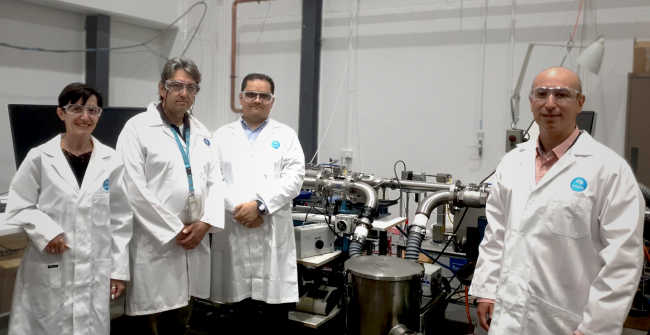Reducing plastic waste from expanded polystyrene
By Pamela Jolly 22 June 2023
Australian manufacturers and researchers are working to improve recycling of expanded polystyrene, which can be a problematic material for both the environment and human health if improperly disposed of.
Researchers from CSIRO and RMIT University are combining their experience in polymer science, manufacturing and prototyping to work on a project to create a recycling unit that will convert polystyrene and expanded polystyrene (EPS) into high-value raw materials. Their aim is to develop a reactor that utilises high temperatures to break down these materials into styrene, ash and gas suitable for industrial uses and to create zero waste.

Polystrene, the air-filled plastic favoured for its light easy mouldability has already been phased out of production for single use cups and take away containers in Australia. However, EPS is still being used in business applications to transport fresh produce, as insulation or cushioning for products during transportation and on construction sites.
Back in 2016/2017, of the 33,000 tonnes of single-use, polystyrene packaging materials, less than six tonnes were recycled. In 2019/2020, of the 23,000 tonnes of EPS placed on the market, an estimated 19,000 tonnes ended up in landfill, while approximately 4,000 tonnes were recycled from commercial and industrial sources. An improvement but still a disappointingly low recycling rate considering clean polystyrene has the potential to be fully recycled if properly managed.
Without proper bagging and recycling of waste EPS, it can end up in landfill where it takes up significant amounts of space and takes hundreds of years to degrade. Made of tiny, aerated plastic beads, small pieces break off and quickly spread to contaminate waterways and cause havoc in the natural environment. This has been seen in Brisbane with polystyrene from pylons damaged during the 2022 floods spreading tiny pieces onto beaches.
Scientists have shown that fragments of the tiny polystyrene beads can cause the oxidation of other elements to produce solids that collect harmful toxins often ingested by wildlife. Exposure to micro polystyrene beads has also been shown to cause deaths in flies.
Until alternative solutions become more widely used, the CSIRO and RMIT research team hope to help users avoid these issues and improve recyclability. They want to deliver a mobile processing solution, direct to sites where significant amounts of EPS is being used, on the back of a ute. This would enable convenient and timely processing while limiting material leakage into the surrounding environment.
With this solution under development, Expanded Polystyrene Australia (EPSA), the national industry body for all manufacturers and distributors of EPS across Australia, has announced an expansion of recycling capacity and drop-off points. It has launched the Styrocycle product stewardship program, which will broaden the locations available for polystyrene collection and processing with up to 12 sites expected across Victoria, NSW, South Australia, Queensland and Tasmania by 2024.
Biodegradable alternatives have also started to make headway with organisations like Officeworks, Beacon Lighting, Canon, HP and others moving to phase out EPS usage. Many packaging businesses are already offering corn starch, popcorn, paper-based, mushroom and even wool based options. Planet Protector Packaging uses wool offcuts to create effective thermal packaging that can be converted into garden cover, pet bedding, carpet underlay and more at its end of life.
With a little creativity and focused innovation, it’s possible to manage problematic materials. We just need more people to understand the benefits of doing so.
Learn more about polystyrene and find recycling points for clean EPS or polystyrene on Recycling Near You. Businesses and workplaces can find recycling services for polystyrene on Business Recycling.
Planet Ark does not take responsibility for the accuracy of the original information and encourages readers to check the references before using this information for their own purposes.
Pamela is a Marketing Communications professional with over 10 years experience working for both agencies and organisations in communications, travel, finance and retail industries. Pamela loves to be in nature riding a bike, skiing, appreciating the trees at her local park or exploring wild places abroad with her family.




